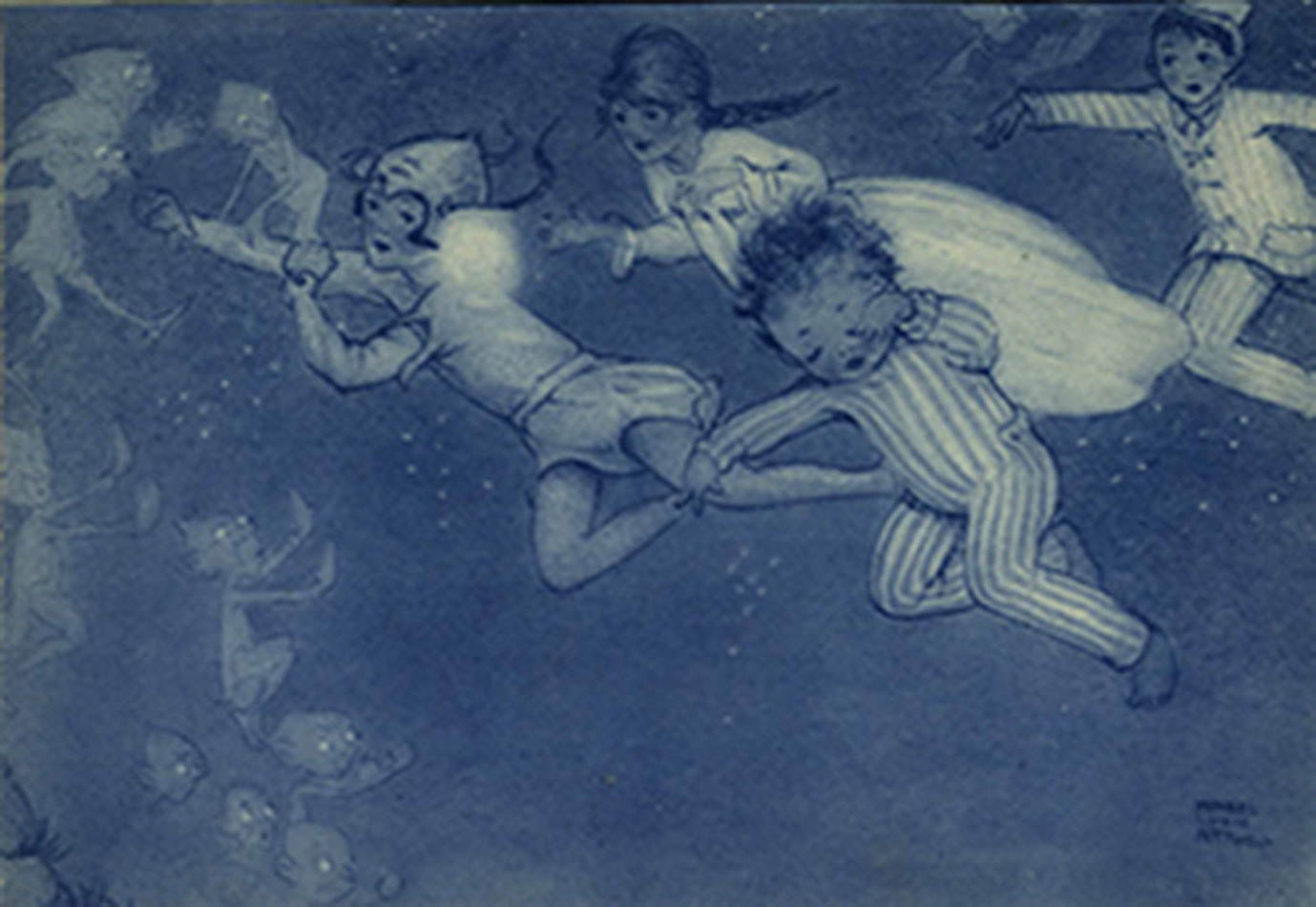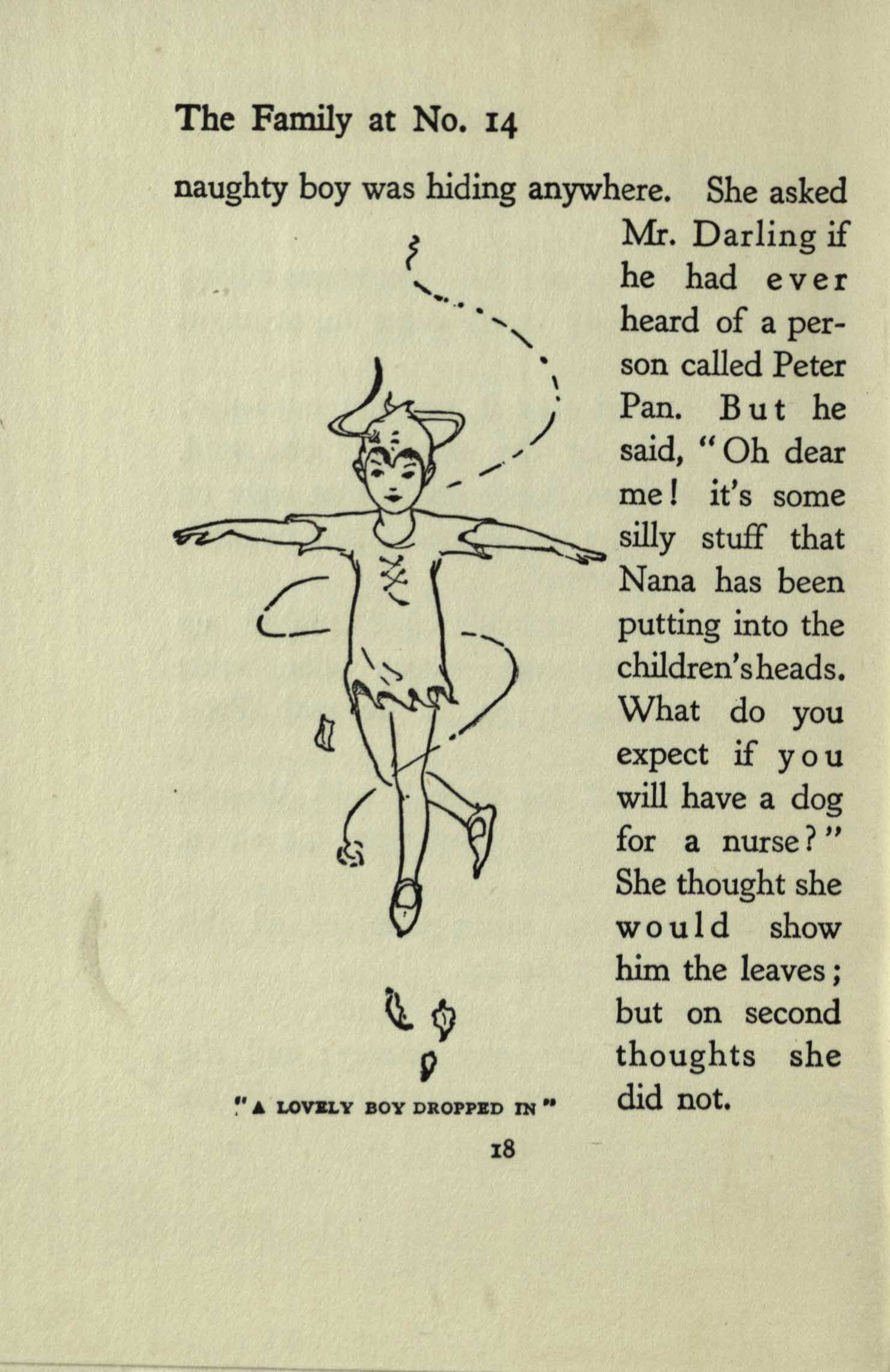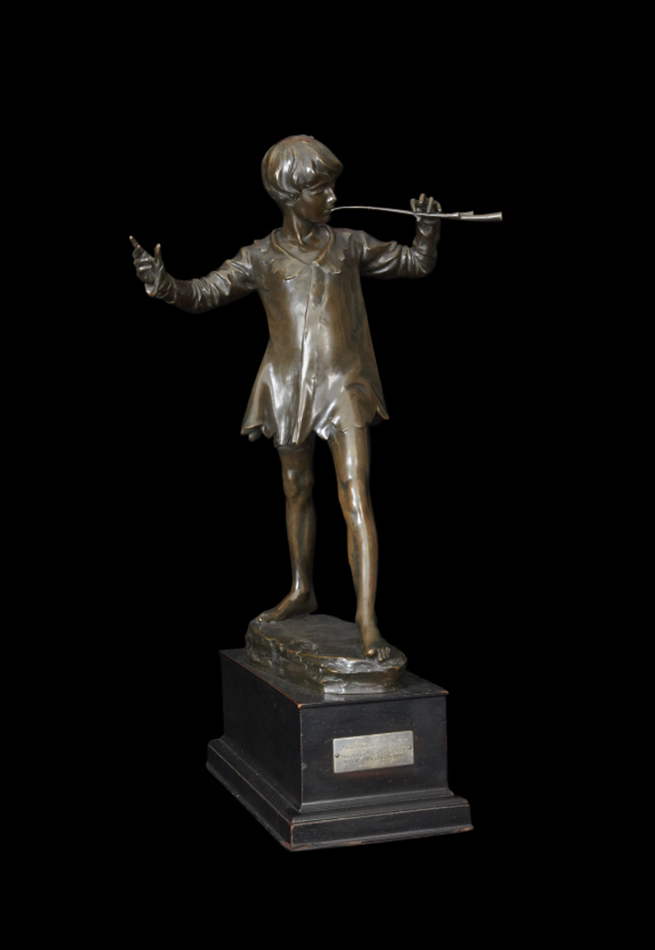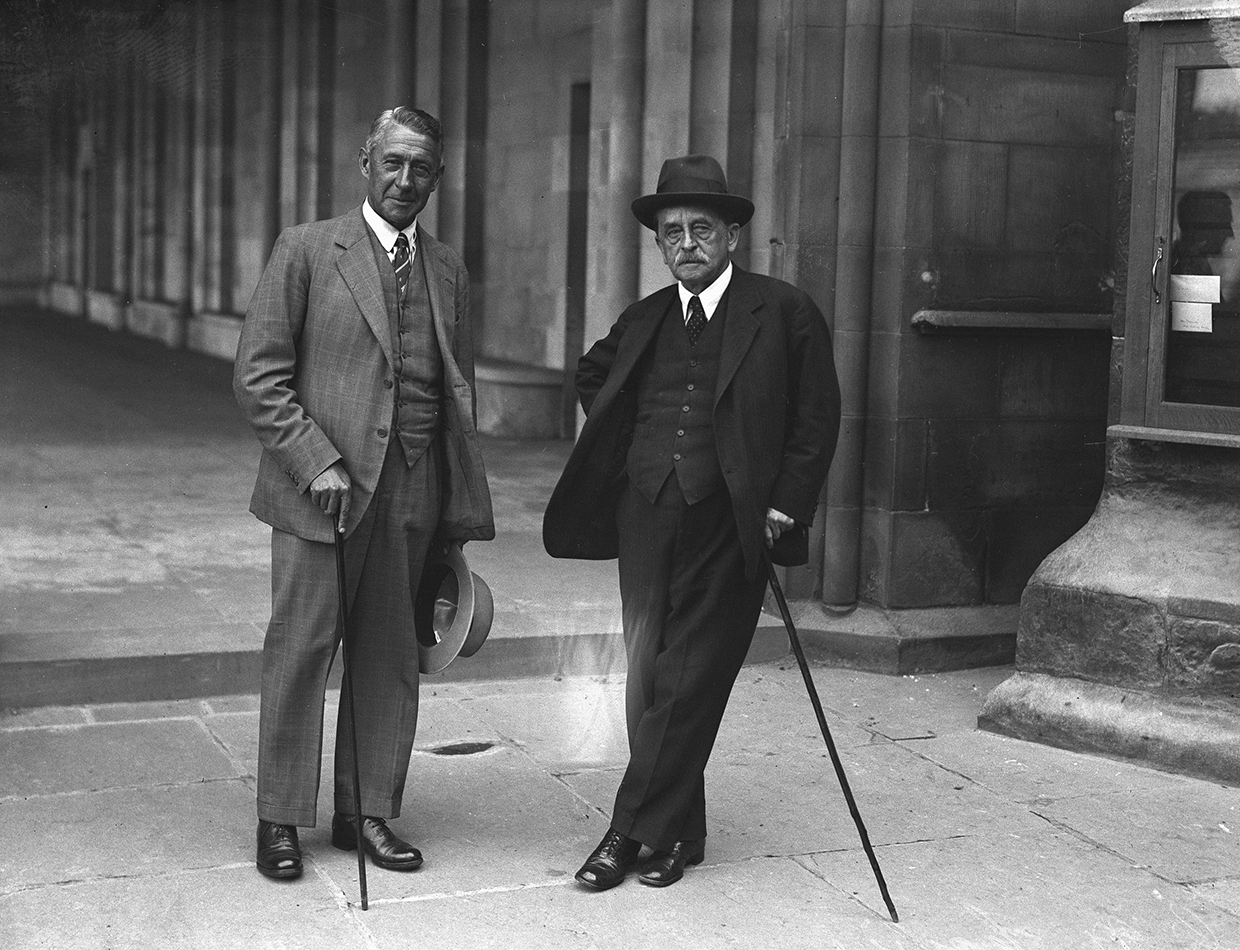Reading the Collections, Week 1: J.M. Barrie, Peter Pan and Wendy (London, 1940)
My first encounter with J M Barrie’s Peter Pan, ‘the boy who couldn’t grow up’ was through the Disney film, which chronicles the adventures of a cheery Peter Pan leading Wendy, Michael and John Darling on the adventure of a lifetime from London to Neverland and back home again. It is not surprising that Disney removed some of Barrie’s more sinister aspects, but reading Peter Pan and Wendy for the first time was a more disturbing experience than I had expected.

Peter Pan originated in a whimsical novel for adults, The Little White Bird, published in 1902. The stage play Peter Pan, or The Boy Who Wouldn’t Grow Up debuted on 27 December 1904 and the play broke all theatrical records; the story was soon reprinted as the children’s book Peter Pan in Kensington Gardens, then adapted as a novel, Peter and Wendy, and later as Peter Pan and Wendy.

Peter Pan is a strange fairytale, with Tinkerbell, pirates, Indians and the Darling children free of the responsibilities of the adult world. I found the novel full of lurid overtones, portraying a peculiar male-centred world which clouds the distinctions between childhood and adulthood, but has at its core a violent hatred of adulthood. Peter is selfish, and incapable of taking care of himself, except in battle scenes. Captain Hook is a passionate hater of children, yet condemned to exist for ever in a world of children. Barrie presents him as the bad parent waiting to be slain. In the story, fathers come in for a hard time – the conceited and unworthy Mr Darling is consigned to the kennel – but mothers have it even worse; ultimately Mrs Darling is dead and forgotten.

It is hardly a surprise that Peter Pan is so dark when one looks at Barrie’s devastating personal history. Peter Pan was written out of the imaginative games Barrie played with the five Llewelyn-Davies boys, whom he had met in Kensington Gardens in the summer of 1897. Barrie took over the family, and after the death of the boys’ parents, he took charge of ‘my boys’, as he called them. Three of the boys met dreadful deaths: George Davies died during the First World War, Michael drowned in a swimming accident in 1921, and one took his own life at the age of sixty-three by jumping in front of a train. Barrie had strong ties to the University of St Andrews: he served as rector of the university from 1919 to 1922 delivering his rectorial address on the subject of “Courage.”

Peter Pan plays to the Edwardian nostalgic idealisation of the innocence of childhood. Frozen in pre-adolescence, the Darling children are kept young as they experience Neverland, the home of Peter Pan, a place where children have power. But Neverland is treacherous, where ‘to die will be an awfully big adventure’. Ultimately Wendy and the Lost Boys have to choose between home and family and losing contact with Neverland for ever. At the end of Peter Pan, the children return to their heartbroken parents as if coming back from the dead. For all the fun of pirates and fairies, and the freedom promised by Peter Pan and Neverland, Peter was a stranger who came to steal the children away.
Gabriel Sewell
Head of Special Collections
I had no idea it was storied this deep. Thank you for sharing this!
[…] wearing her doctoral robes. She might have had a greater accolade yet. A letter from author and University Rector JM Barrie to Principal James Irvine in 1925 suggested that Dame Millicent would make a perfect candidate for […]
my name is brian parker I played the part of michael in the london poduction of peter pan in 1940,and again in 1942 . I think the coments of the writer above need refining. first of all J.M.Barrie,put in his Will that the part of peter must be played by a Girl or a Woman ; Francis Day piayed in1940 and Mary Morrisy in 1942. WWW 2 was in full swing ,bomes were droping all around us, we loved the play and so did the audiance ,it kept us from thinking about the war .I was just 9years old .in 1940 I am now 87ys young. it is 2019 .THANK YOU MR J,M.BARRIE ..